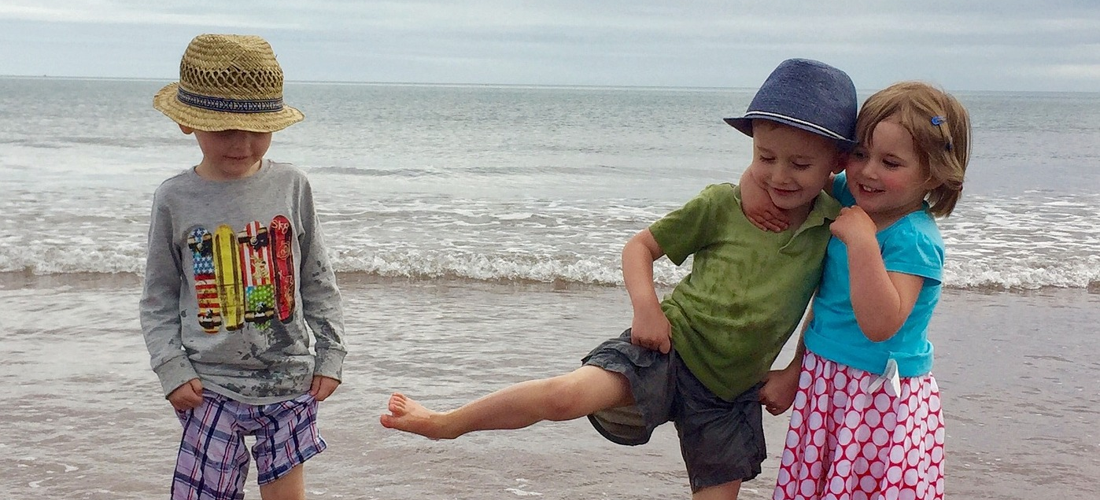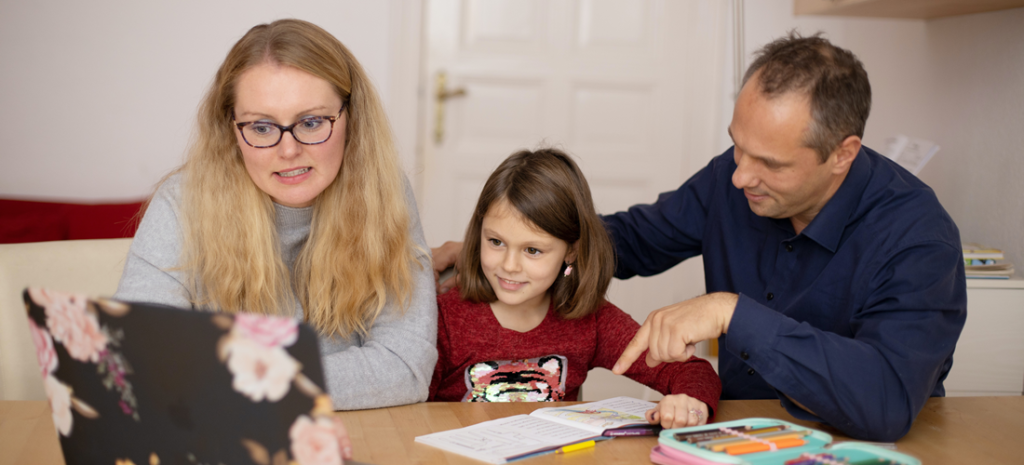Homeschooling has emerged as a viable alternative to traditional schooling. While it is associated with a number of benefits such as flexible schedules and personalized learning, one looming concern is socialization. Parents often worry if their children will miss out on the essential social interactions that conventional schools offer. However, socialization in homeschooling isn’t an elusive goal. Today we are going to explore creative homeschooling socialization activities that can ensure your child’s holistic development.
Homeschooling, as an educational alternative, provides a flexible and individualized learning environment. The one-on-one nature of homeschooling allows for tailored curriculums that cater to a child’s unique learning style, interests, and pace. This method can foster a love for learning, promote higher academic achievement, and encourage self-directed learning.
However, comprehensive child development transcends academic accomplishments. It also encompasses the development of social skills, empathy, teamwork, and communication skills, which are often cultivated through interactions with peers. Socialization, thus, plays a crucial role in creating well-rounded individuals capable of meaningful interactions and relationships. Despite the misconceptions, homeschooling can provide ample opportunities for social interactions through thoughtful and creative homeschooling socialization activities.
The Role of Socialization in Homeschooling
Unique Opportunities for Social Growth in a Homeschool Environment
The homeschool environment presents unique and diverse opportunities for social growth that go above and beyond traditional schooling. Homeschooled children can participate in meaningful interactions with people of different age groups, cultures, and societal roles through community engagement. This broad exposure helps to foster a deep understanding of societal norms and values, enhancing their social adaptability.
Plus, homeschooling allows for flexible participation in a variety of extracurricular activities and hobby groups, where children can interact with like-minded peers and develop friendships. This goes a long way in promoting the development of personal identity and self-esteem.
In addition, the homeschool environment offers a safe and supportive space for children to express themselves freely, encouraging them to voice their opinions and engage in intellectual debate. This not only refines their communication skills but also instills a sense of responsibility and respect for differing perspectives.
In short, homeschooling socialization activities cultivate a well-rounded, sociable, and confident individual equipped to navigate the intricacies of the broader society. It is a testament to the fact that far from being isolated, homeschooled children can experience rich and diverse social learning opportunities.
The Need for Intentional Socialization Activities in Homeschooling
Intentional socialization activities play a critical role in homeschooling as they are deliberately designed to facilitate meaningful interaction, collaboration, and social learning among homeschooled children. While the homeschool environment offers numerous opportunities for socialization, purposeful planning and execution of socialization activities can make a significant difference in a child’s social and emotional development.
These activities ensure that children do not miss out on the diversity of social experiences that traditional schools provide. They help in bridging the gap between academic learning and real-world social dynamics, providing children with practical social skills that are essential for their overall development. These activities range from field trips, community service projects, sports teams, to online hobby clubs, enabling homeschooled students to build strong and meaningful relationships with a diverse set of peers.
Intentional socialization activities in homeschooling are not just supplementary facets of learning, but fundamental components that foster well-rounded development. Therefore, they should be integrated thoughtfully into the homeschooling curriculum.
Misconceptions about Homeschooling and Socialization
- Limited Social Interactions: One of the most common misconceptions is that homeschooling limits a child’s social interactions. It is misunderstood that homeschoolers are confined to their homes, without opportunities to interact with peers. However, homeschooling socialization activities can include involvement in community events, sports teams, and hobby clubs, ensuring children have regular, diverse social interactions.
- Lack of Diversity: Another misconception is that homeschooling children are not exposed to a diverse range of people, unlike those attending traditional schools. In reality, homeschooling can offer a broader spectrum of socialization, extending beyond age-segregated classrooms to include people from different age groups and backgrounds in the community.
- Inadequate Development of Social Skills: Some believe that homeschoolers may lack social skills due to limited exposure to varied social situations. However, research has consistently shown that homeschoolers often outperform their traditionally schooled peers in measures of social, psychological, and emotional maturity.
- Absence of Teamwork and Competition: Critics also argue that homeschooling doesn’t provide the same opportunities to learn about teamwork and competition as traditional schooling. Contrarily, homeschoolers can participate in co-op classes and local sports teams, which provide ample avenues to learn cooperation and healthy competition.
Age-Appropriate Socialization Activities
Preschool and Early Elementary
1. Playgroups and Playdates
This can be one of the simplest and most effective ways to facilitate socialization for homeschoolers. Organizing playdates with kids of similar age or joining local playgroups allows children to engage in unstructured, imaginative play, which is crucial for their social and emotional development.
2. Community Classes
Community classes like dance, music, martial arts, or gymnastics offer preschool and early elementary homeschoolers the opportunity to learn new skills while interacting with their peers. These classes also foster discipline and teamwork.
3. Public Library Programs
Most public libraries run story hours or craft classes for children. These programs provide a fantastic way for kids to interact with others while improving their literacy skills and sparking creativity.
4. Co-Op Homeschool Groups
Co-Op homeschool groups are an excellent resource where children can learn in a group setting. Kids get to engage in educational activities with their peers, fostering a sense of community and mutual cooperation.
5. Nature and Park Outings
Regular outings to parks or nature reserves can provide opportunities for children to interact with others while also instilling a love for the environment. Activities can include bird watching, a simple picnic, or participating in park-organized events.
Upper Elementary and Middle School
1. Sports Teams and Clubs
Participation in sports teams or clubs can be a great platform for upper elementary and middle school homeschoolers to interact with their peers. These activities not only contribute to physical health but also promote teamwork, leadership, and discipline. Schools and community centers often host such groups, and they can range from soccer teams to chess clubs.
2. Volunteer Work
Encouraging volunteer work is a fantastic way to expose kids to different societal issues and environments. Animal shelters, food banks, or local charities are some of the places where they can contribute and learn valuable life skills such as empathy, responsibility, and community building.
3. Book Clubs
Book clubs can offer a new dimension of social interaction by stimulating intellectual conversations and debates. It encourages children to read more, enhances their comprehension skills, and fosters critical thinking.
4. Homeschool Field Trips
Organizing field trips to places like museums, art exhibitions, historical sites, or science centers can provide a fun and educational socialization avenue. Group tours can facilitate team collaboration and enhance their understanding of various subjects.
5. Learning Workshops and Camps
Workshops or camps focusing on STEM, writing, arts, or other interests can provide an environment for children to explore their passions, develop new skills, and socialize with like-minded peers. These platforms can expand their horizons and foster a lifelong love for learning.
6. Online Homeschooling Communities
With the rise of digital platforms, online homeschooling communities have become more prevalent. They allow children to engage with others across the globe, expanding their cultural understanding and promoting global citizenship. These communities often host virtual events, webinars, or even online competitions, offering a unique aspect of socialization.
High School
1. Sports and Fitness Groups
Participating in local sports teams, fitness clubs, or dance classes can instill teamwork, discipline, and persistence in high school students. In addition to the physical benefits, these activities can lead to the development of friendships and provide social interaction outside the academic environment.
2. Internships or Part-time Jobs
High school students can gain real-world experience and valuable soft skills, such as communication, problem-solving, and time management, by undertaking internships or part-time jobs. These opportunities also allow them to explore potential career paths and broaden their professional network.
3. Debate and Public Speaking Clubs
Joining debate teams or public speaking clubs can help homeschoolers enhance their critical thinking, research skills, and effective communication. These platforms can also foster an understanding of diverse views and encourage respectful discussions on various topics.
4. College Prep Groups
College prep groups can offer socialization while preparing students for higher education. These groups can host university visits, SAT preparation classes, and counseling sessions, enabling students to share the journey with their peers navigating the same path.
5. Volunteer Work
Engaging in volunteer work or community service projects can promote empathy, responsibility, and a sense of belonging. It can expose students to different societal issues and provide a practical understanding of the importance of giving back to the community.
6. Group Projects and Collaborative Learning
Implementing group projects or collaborative learning experiences can foster teamwork, conflict resolution, and leadership skills. It can also provide an avenue for intellectual discussions and exchange of ideas among peers.
Other Creative Socialization Ideas
1. Pen Pals and Virtual Friendships
Fostering pen pal relationships and virtual friendships can be an effective method of socialization for homeschooled children. This approach breaks the limitation of geographical boundaries, allowing students to connect with peers across the globe.
They can learn about different cultures, languages, and perspectives, enhancing their global awareness and empathy. Additionally, corresponding with a pen pal can improve their writing and communication skills.
Virtual friendships, formed through online platforms or educational forums, can also provide a sense of community and shared learning experience. It creates a safe space for open discussions, collaborative problem-solving, and mutual support in their homeschooling journey.
2. Podcasting or Blogging Collaborations
Encouraging homeschooled children to participate in podcasting or blogging collaborations can greatly enrich their socialization experience. In podcasting, they can co-host episodes with peers, interview guests from diverse backgrounds, or participate in roundtable discussions on topics of shared interest. This interaction not only helps students improve their communication and listening skills, but also offers an excellent opportunity to learn from others’ experiences and perspectives.
Blogging collaborations, on the other hand, can be a platform for homeschooled children to work together on projects, explore new ideas, and share their thoughts and creativity with a wider audience. By collaborating on blogs, they can learn to respect different viewpoints, enhance their writing ability, and develop a sense of digital citizenship. Both podcasting and blogging collaborations can foster a sense of community among homeschooled children, providing a unique medium for interaction and shared learning.
3. Themed Socialization Events
Themed socialization events such as science fairs or art exhibits are another creative method of fostering social interaction in a homeschooling setting. These events offer children the chance to showcase their skills and achievements, express their creativity, and learn from their peers in a structured yet engaging environment.
For example, a science fair allows homeschooled children to delve into scientific exploration, conduct experiments, and present their findings. This not only enhances their understanding of scientific concepts, but also helps them develop presentation and public speaking skills. Similarly, by participating in art exhibits, children get the opportunity to express their creativity, build their artistic skills, and appreciate the artistic expressions of others.
These themed events also encourage group problem-solving, teamwork, and healthy competition, all of which are key elements in social development. They provide an ideal platform for homeschooled children to interact with their peers, exchange ideas, and broaden their perspective, making them well-rounded individuals.
4. Family Game Nights and Potluck Dinners
Family game nights and potluck dinners are an enjoyable and effective way to boost socialization skills among homeschooled children. By engaging in various board games, card games, or interactive video games, children can learn crucial social norms such as taking turns, fair play, and sportsmanship. These games can also stimulate critical thinking, strategic planning, and problem-solving skills.
Additionally, potluck dinners serve as a platform for children to interact with diverse age groups. They provide an informal and comfortable setting where kids can engage in conversations, share experiences, and learn to respect different tastes and cultures. It’s an opportunity for children to contribute a dish, fostering responsibility and pride in their culinary creations. This combination of relaxed social interaction and shared responsibility makes family game nights and potluck dinners a valuable addition to homeschooling socialization activities.
Balancing Socialization and Academic Focus
Effective Time Management: The Key to Balanced Homeschooling
Balancing academic focus and socialization in a homeschooling environment may seem challenging, but effective time management can make the task considerably easier. Here are a few tips for managing time effectively:
- Set a Routine: Establish a daily or weekly routine, helping your child to understand what to expect each day. This structure is essential to provide a balance between academic tasks and socialization activities.
- Prioritize Tasks: Not all tasks are of equal importance. Determine which tasks are most crucial and tackle those first. This approach ensures that important academic responsibilities don’t get overshadowed by socialization activities.
- Flexible Scheduling: While maintaining a routine is essential, flexibility is also key. Be open to adjusting the schedule to accommodate impromptu socialization opportunities.
- Use of Technology: Use digital tools for organizing tasks, setting reminders, and tracking progress. Apps and software can significantly simplify the task of managing homeschooling schedules.
- Breaks are Essential: Breaks are not just for relaxation. They’re also opportunities for social interaction. Schedule regular breaks where your child can engage with peers, whether in person or online.
Remember, the goal of time management in a homeschooling environment is not just about getting tasks done. It’s about creating a well-rounded learning experience that balances rigorous academics with enriching socialization activities.
Integrating Socialization into the Curriculum
Integrating socialization activities into the homeschooling curriculum doesn’t need to be a complicated process. It can be as simple as incorporating group projects, study circles, and interactive learning into the academic routine.
Group projects encourage teamwork and cooperation, fostering both learning and social skills. Study circles, which could be formed with other homeschooling families or online, can stimulate intellectual discussions and provide a platform for debates, aiding in social development.
Interactive learning can be facilitated through digital platforms or educational games, promoting engagement, and interaction with diverse individuals. Participating in extracurricular activities, such as sports, art classes, or music lessons, can also be a great way to meet peers and develop new skills.
Any activity that promotes interaction and communication can be considered a socialization activity in a homeschooling environment. The key is to strike a balance, ensuring that these activities complement the academic curriculum rather than detract from it.
Recognizing Individual Socialization Needs
Recognizing individual socialization needs in a homeschooling context is integral to the holistic development of a child. Just as every child’s learning style is unique, so are their socialization needs. Some children thrive in large groups, while others prefer smaller, more intimate settings. Similarly, some children might enjoy engaging in competitive activities, while others might feel more comfortable in cooperative environments. Understanding these needs and preferences can significantly impact a child’s social development.
For instance, if your child is an introvert, forcing them into large group settings might create discomfort and anxiety. Instead, encouraging participation in smaller study groups or one-on-one interactions can foster a more positive social experience. On the other hand, extroverted children might thrive on team sports or drama clubs where they can interact with a larger group.
It’s also crucial to consider the child’s interests and inclinations while selecting socialization activities. If a child is passionate about music, enrolling them in a local choir or music club can make socializing an enjoyable experience.
By recognizing and catering to our children’s socialization needs, we can ensure they are gaining the most from their homeschooling socialization activities, developing well-rounded skills, and nurturing their individual personalities.
Closing Thoughts on Homeschooling Socialization Activities
Embracing homeschooling means embracing the challenge and responsibility of nurturing the social development of our children. Homeschooling socialization activities, when carefully chosen and aligned with a child’s unique needs, can provide abundant opportunities for growth and learning.
The flexible environment of homeschooling allows us to think outside the box in fostering social experiences. From team sports, music clubs, study groups to cooperative learning environments, the options are diverse.
Most importantly, we must remember that every child is different. The best socialization activities are ones that respect these differences and encourage children to explore their social world in a way that is comfortable, enjoyable, and enriching to them.
As facilitators of our children’s homeschooling journey, our goal is to provide a variety of socialization opportunities that contribute to the development of well-rounded, confident, and socially adept individuals.


